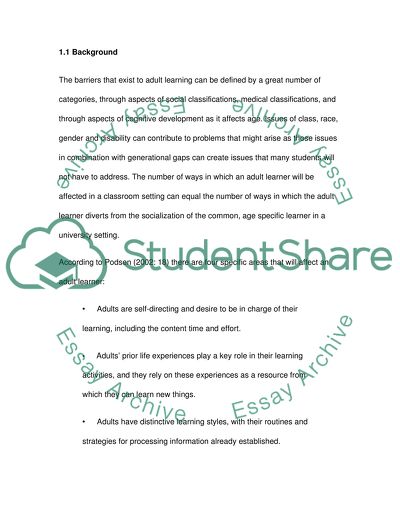Cite this document
(“Barriers to participation in adult learning Essay”, n.d.)
Retrieved from https://studentshare.org/environmental-studies/1421356-barriers-to-participation-in-adult-learning
Retrieved from https://studentshare.org/environmental-studies/1421356-barriers-to-participation-in-adult-learning
(Barriers to Participation in Adult Learning Essay)
https://studentshare.org/environmental-studies/1421356-barriers-to-participation-in-adult-learning.
https://studentshare.org/environmental-studies/1421356-barriers-to-participation-in-adult-learning.
“Barriers to Participation in Adult Learning Essay”, n.d. https://studentshare.org/environmental-studies/1421356-barriers-to-participation-in-adult-learning.


